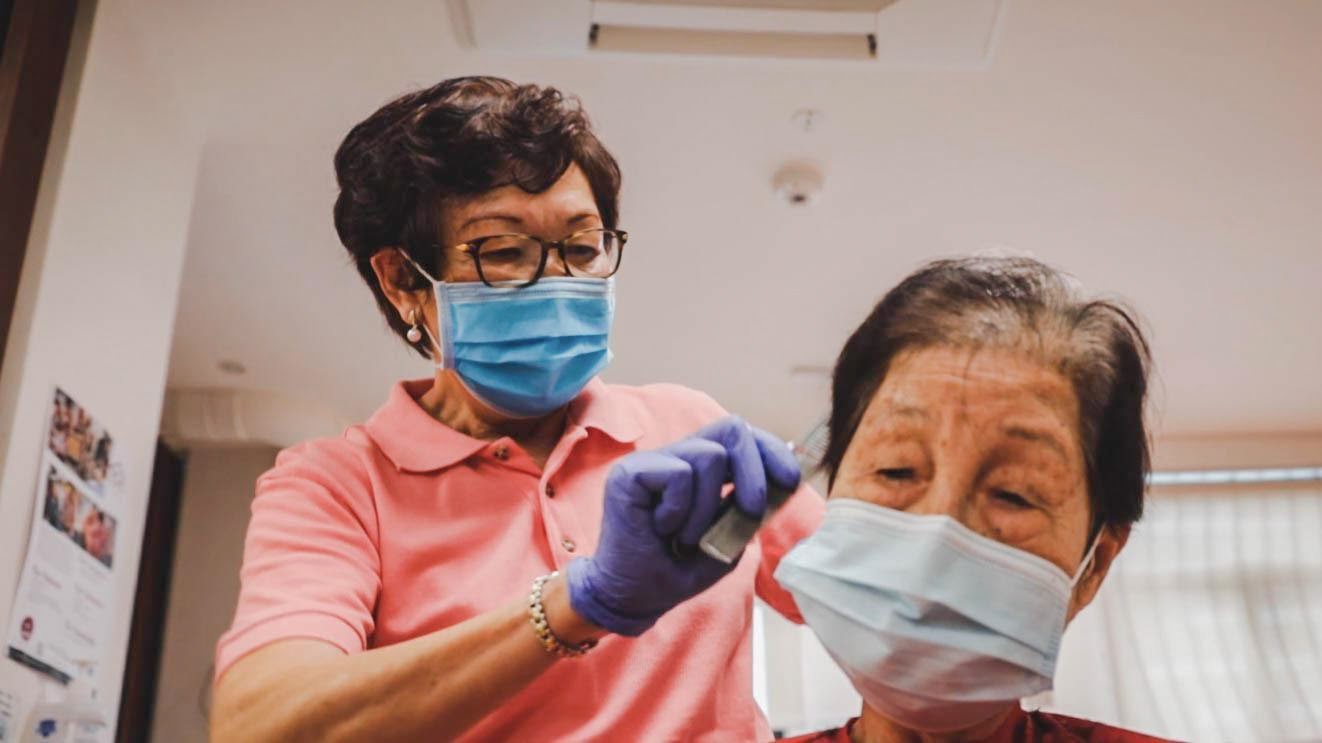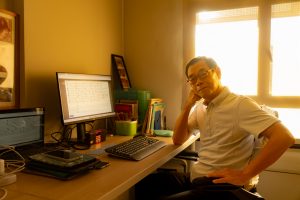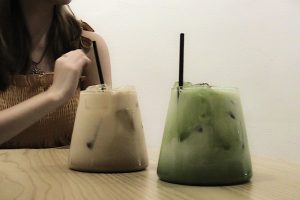All images provided by HCA Hospice Care.
If there’s anything I learned from binging all 6 seasons of Queer Eye (shoutout to Jonathan Van Ness), it’s that something as simple as hair can make a world of a difference to one’s sense of self.
It’s no different for terminally ill patients on the brink of death, affirms 74-year-old retired hairdresser Mdm Cheok Boon Kiew.
After years of giving haircuts to dying patients, she knows that many of them yearn to look presentable even in their last living moments.
“To look good and feel good — that’s a universal thing among humans,” she says, in fluent Mandarin. “That’s our dignity.”
For many of these seniors nearing the end of their lifetimes, love doesn’t come in the form of chocolates, flower bouquets or cheesy pick-up lines either. It lies in the sincerity of one’s actions, which Mdm Cheok hopes to deliver through a pair of scissors.
It’s More Than Just Hair
Growing up in Malaysia, Mdm Cheok observed how hairdressers work wonders. Intrigued, she chose to pick up the skill as a way to make a living for herself and migrated in the late ‘70s to set up a humble hair salon in the heartlands of Singapore. It was only after her daughters stepped into the workforce that she retired in the early 2000s.
But the retiree continues to ply her craft today. Mdm Cheok has been giving free haircuts to terminally-ill patients as a volunteer at HCA Hospice Care’s day hospices for over 20 years.

Many of these patients deal with illnesses like cancer and organ failure which whittle their movements. These are people who were once independent but are now finding basic tasks like hair grooming insurmountable.
As a seasoned volunteer herself, Mdm Cheok has seen it all. The unspoken sense of loneliness, helplessness, smiles and worries; including the literal last breaths of patients who’d grown to be her friends after so many years.
She recalls a time when a patient passed before her eyes shortly after getting a haircut. His last expression, she says, was of joy and peace. Mdm Cheok didn’t think much of his request at first but later realised that the haircut was his humble dying wish.
“It’s definitely painful to see them leave, but death is a part of life. The least we can do is empower them even in their last moments. I consider it an honour,” Mdm Cheok says matter-of-factly.
While making a personal visit to HCA two decades back, Mdm Cheok witnessed some seniors’ dishevelled hair — think tangled locks and unkempt waist-length tresses. She took it upon herself to set up a team comprising eight retired hairdressers; each armed with seasoned skill sets that can be put to meaningful use.


“Without proper love and care, hair can easily turn to stubborn knots,” she explains. “When that happens, it will negatively affect the way these seniors view themselves.”
Mdm Cheok emphasises the need for volunteers to deliver quality service. “Patients are still humans. They’re at the mercy of our care, but we can’t just give them ugly haircuts and call it a day. I take this very seriously.”
Stringent as she may be about who makes the cut to join her team, Mdm Cheok expressed that she’s more than willing to show the ropes to new (and less experienced) volunteers should they express genuine interest.
Despite the occasional emotional burnout, she has no plans to stop anytime soon. That is, until the day her health wildly deteriorates or when her hands stop functioning, she says.
To this day, Mdm Cheok continues to take on the difficult task for what she considers a straightforward reason: “Like many of us, these people just need love.”
Acts of Service: A Language of Love
Of the five different love languages, ‘acts of service’ is likely one that’s wildly overshadowed. To have someone express their love simply by doing things — some might find it uncomfortable or even hard to understand. At its core though, all that means is actions speak louder than words.
Every snip of Mdm Cheok’s scissors says “you are loved” to terminally ill patients who sit in her chair. It’s intimate. It’s louder than any declaration. It’s akin to a loving mom who quietly does the family’s laundry without complaints or labours in the kitchen to prepare her child’s favourite meals as a way to express affection.

For these seniors, such visits mean a chance to catch up with familiar friends whilst getting a charming makeover. No matter if they’re old; no matter if they’re wheelchair-bound; no matter if their roots are fully greyed out.
Plus, a haircutting session is as much a social experience as it is about the actual cut. Some of these patients, Mdm Cheok says, love chatting up a storm once they’ve opened their hearts to volunteers who come. With that intimate trust established, conversations often move seamlessly from family issues to personal struggles to everyday ongoings.
For a few hours on Tuesdays, life slows down to a happy pace — that’s when the hairdressing volunteers swing by to bring order to hairdos. Once a week, seniors are given a choice to request a particular hairstyle; anything that makes them feel more like themselves.
“One of the best things we can do as volunteers is to respect their wishes and to understand their unique needs, experiences, or desires,” Mdm Cheok explains. As a person loses some of their functions and their world becomes smaller, it’s the little things that become crucial to their individuality.
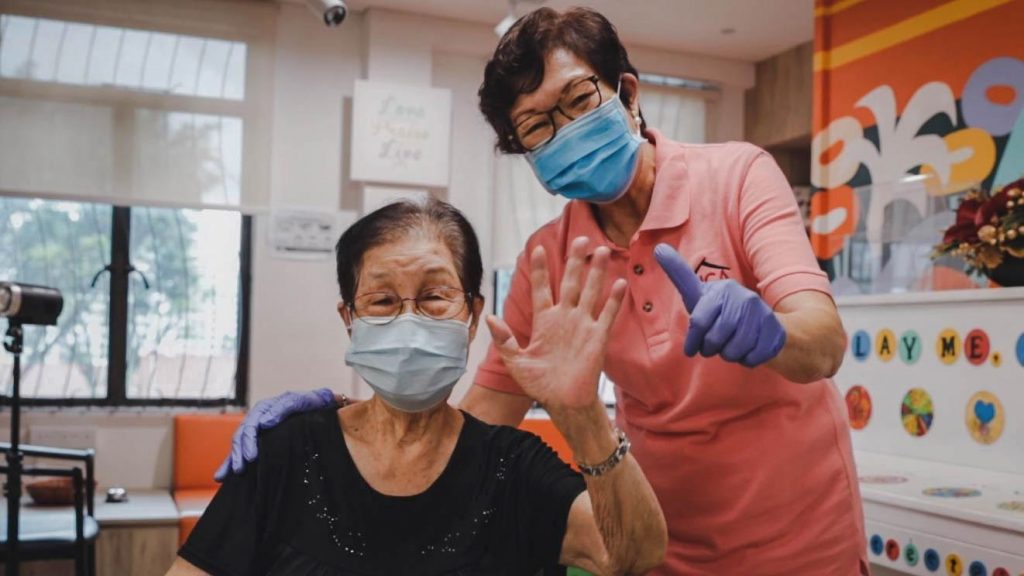
I picture Mdm Cheok returning consistently each week for the same mission — simply to keep them company while she trims. Over time, she’d learn to pay attention to the patients’ most intimate needs, watch health conditions grow in stages and witness their eventual passing.
Mdm Cheok is a bubbly woman. Her eyes light up when recounting a story, and I sense her infectious, nurturing spirit though we’ve only interacted virtually. It was a wake-up call to how we can do much more to love those who most need it.
Compassion: A Rippling Effect
There are always a million and one reasons why we procrastinate when it comes to volunteering. I know I’m guilty of that. No time, for instance, or the belief that our tiny, individual efforts don’t matter in the grand scheme of things.
But there’s strength in numbers and a strange rippling effect once someone starts the ball rolling. In fact, Mdm Cheok’s daughters have started to volunteer recently too. While they may not be in the haircutting team, it’s unsurprising that they’ve followed their mom’s footsteps in giving back to the community.
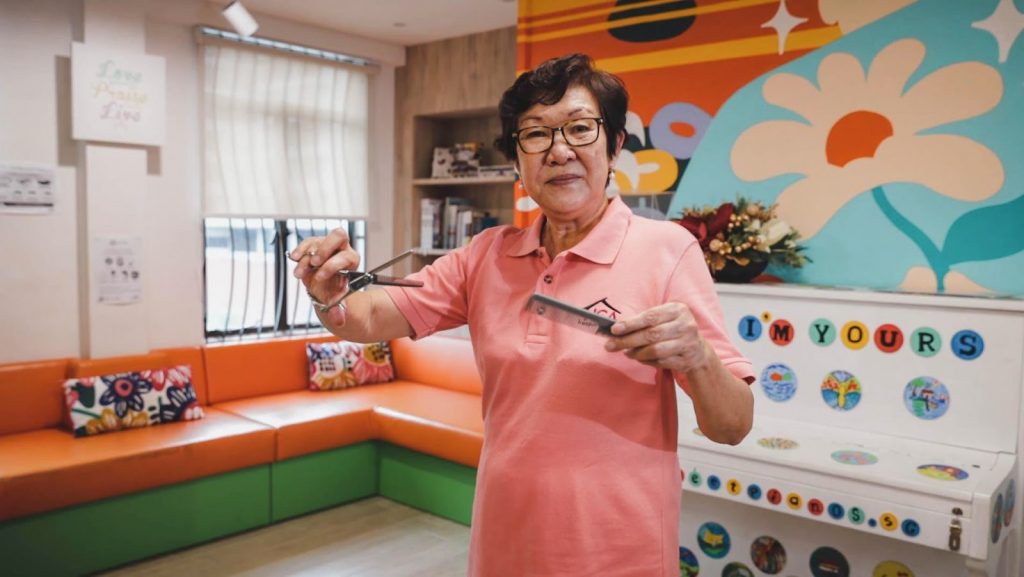
We’ve been taught a specific set of ideas about love from young. Commercials on traditions like Valentines’ Day are often centred around gifts “for him” and “for her”. Beyond romantic relationships though, are different types of love — and we ought to celebrate them all the same.
Whether it’s distributing food, making weekly calls, or tutoring kids, there is likely a non-profit out there that needs some love through support and manpower; more than we realise.
I know for a fact that Mdm Cheok has loved and touched the lives of many terminally ill seniors with just a pair of scissors alone. Despite her many years in service of others, she fervently advocates for more to be done.
“If not on special occasions like Valentines’ Day, then on any regular day. There’s always a need for love to go around,” she says. To that end, Mdm Cheok sees volunteering as a meaningful activity for anyone with the sincerest of hearts.
As she puts it: “I’ve always believed that volunteering has to be genuine — with the right purpose, you’ll come to realise that efforts should never be self-serving, but truly for the joy of others.”
“At the end of the day, to give is really to receive.”

